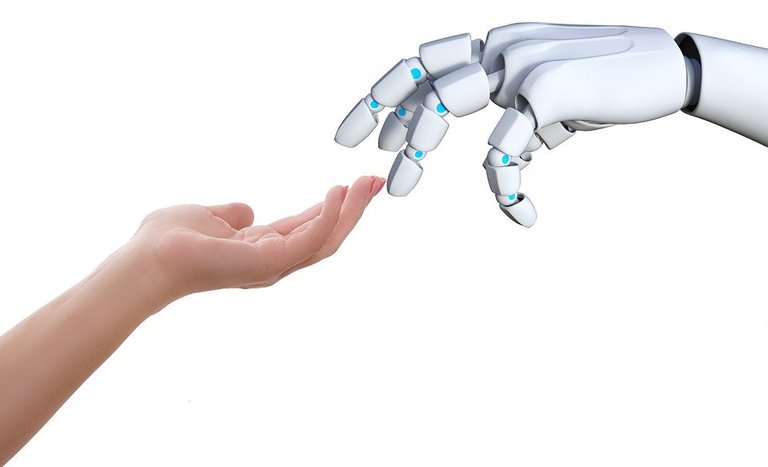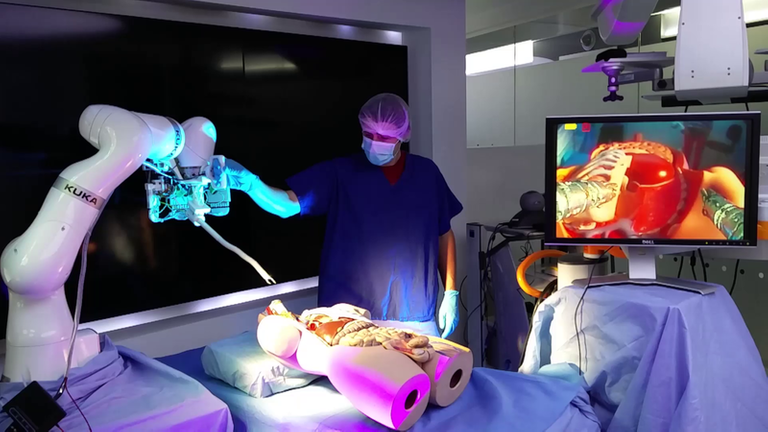artificial intelligence is growing faster than you think and the pace of its progress is unimaginable. We use it every day, all day long. It is now deeply rooted in our lives. The fact, it was once read in science fictions may now seem like the past.
In 1956, mathematicians and scientists from all over the United States gathered at Dartmouth College in Hanover, New Hampshire, to give birth to a new science. The scripture was new and it had no name. They wanted to build a machine - one that could think!
The pursuit of this artificial intelligence has continued ever since. There were only ideas before this, but that's when the actual work began.

Source
AI is everywhere, it's in your GPS, it's in your mobile, it's where you work. It keeps recommending it to you wherever you click to buy some thing, or just look at to do. But the ultimate goal of scientists in this field is to create 'universal-omnipresent artificial intelligence'. It will be a system where artificial intelligence can work on its own; not needing any one to assist, will be self-sufficient and it can put people behind in the field of science! Most of the scientists believe that this could take up to few decades, and some even predict centuries.
For the first time, a robot successfully implanted two teeth in a patient. It was given human help only at the beginning of the process. After this surgery became successful for the first time, its scope can increase rapidly. If we take the example of China alone, it is estimated that about 400 million Chinese citizens need dental implants every year. And the number of surgeries performed is only 1 million per year. For those looking for cheaper alternatives, complications increase in future. Meeting this need using AI, will eliminate robotics errors and greatly reduce future complications.
This is important because, like other professional services such as law and medicine, many people cannot afford dental services because of the cost. Robotics and artificial intelligence will fill that void. As investments go heavily in robotics, the pace of experimentation and innovation will continue to grow. Don't be surprised if you see it being implemented at a very fast pace from China soon.
There is one more event, which shows the influence of artificial intelligence in the future.
Stephen Weng of the University of Nottingham and his colleagues have developed an algorithm that can surpass human potential in predicting heart disease. Over the next decade, four different artificial intelligence algorithms examined patients who were at risk for cardiovascular risk. The test, conducted under the guidelines of the American College of Cardiology as well as the American Heart Association, found that all of these algorithms make about eight percent more accurate predictions than human capabilities. That is, whether a person had a heart attack or not, it has been proven that artificial intelligence can diagnose more accurately than even the best doctor in the world.

Source
This is why this method makes complex analysis faster, cheaper, and easier than current methods. It can also happen that more and more doctors will take advantage of technology to enhance their decision-making capacity, to survive and be more valuable in the competitive environment.
Today artificial intelligence operates in the stock markets, can diagnose many diseases more accurately than any other human, and in many banks communicates with its customers rather than employees. Scientists conducting research in various disciplines speak not one artificial intelligence but hundreds of artificial intelligence working at a time. In the last few years, a new science called machine learning has emerged, from which man has stepped aside as a programmer and the 'algorithm' has become the program itself.
Throughout history, technology has been neutral and we see its advantages and disadvantages depending on how we use it. As a living being, human is an aggressive animal, we want to grow out of competition, and we are incredibly lazy. Also, we sometimes think of the community beyond ourselves, we are able to make sacrifices. All of these factors will shape our future.
It is believed that by year 2040, artificial intelligence will be as smart as human beings, and it is also believed that this is the most dangerous thing for human existence. So once it goes beyond the level of human intelligence, we will not be able to control it. When a man-born, nurtured artificial intellect stings a man, will it be poisonous or nectarine? The answer to this question decide that, we will become extinct or immortal before the end of this century!